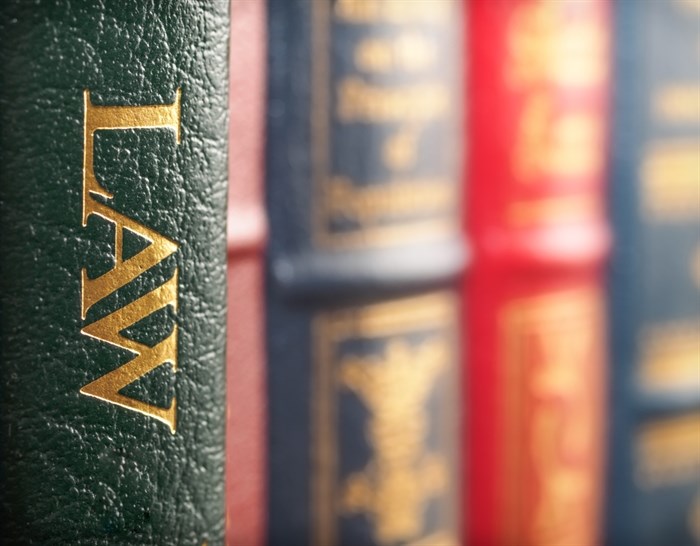
Image Credit: Shutterstock
December 04, 2020 - 6:00 AM
In a case which highlights the complexities and contradictions in sentencing Indigenous offenders, a B.C. Supreme Court Justice has sentenced a 53-year old aboriginal man to four years in jail after he shot a family friend, leaving the Indigenous woman with lifelong injuries.
Crown prosecutors in the case had asked for eight years prison, but B.C. Supreme Court Justice Janet Winteringham sentenced Kelvin Alphonse, a Tsilhquot’in First Nation man, to four years for the shooting in Quesnel in January 2016.
The victim, Janet Paul, a mother of five, spent several months in hospital and now lives with permanent debilitating injuries.
In the Nov. 27 decision on sentencing, Justice Winteringham talks at length about the complexities of sentencing Indigenous offenders while balancing minimum mandatory sentences combined with the fact the victim is also Indigenous.
The Supreme Court of Canada has established that judges must impose sentences which, among many other things, denounce unlawful conduct, recognize the harm done to the victim and the community, and assist to rehabilitate the offender. For Indigenous offenders, judges must also pay extra attention to their background due to the history of colonization and over-representation in Canadian prisons.
The Criminal Code also says judges must recognize the disproportionate rate of violence Indigenous women face and take this into consideration when sentencing perpetrators.
Alphonse's lawyers asked for a sentence of two years of house arrest arguing that the Justice must take into account that he was a residential school survivor and had suffered lifelong adversity due to the impacts of colonialism. The defence lawyer said a prison sentence would be unconstitutional given that the court had to recognize Alphonse’s aboriginal heritage.
"It is here where the tension reveals itself. On the one hand, Parliament insists that certain firearms offences must be punished by a prescribed minimum jail sentence," Justice Winteringham said. "On the other, Parliament directs sentencing judges to recognize the systemic racism that plagues our criminal justice system and which has caused the disproportionate incarceration of Indigenous peoples."
The Justice goes on to say "nowhere" is this tension more evident than in a case such as this.
According to the decision, the shooting took place Jan. 31, 2016, when Alphonse and Paul were with family and friends having drinks at someone's house. An argument broke out between Alphonse and another man and he was asked to leave. He did, but then returned with a gun. He shot Paul as she was walking home with her nephew.
"The injuries suffered by Ms. Paul were devastating and her recovery will be lifelong," the decision says.
According to the decision, Alphonse was born in Williams Lake and attended a residential school where he experienced "every kind of abuse" and became "irreparably traumatized."
The decision says Alphonse had worked on and off throughout his life but suffered from alcohol dependency. In 2015 he lost his job and he became depressed and started drinking heavily. On the day of the shooting, he’d been drinking and has little to no recollection of the shooting or the events leading up to it.
The decision says the shooting had a large impact on the small community.
“A rift grew in the community where members thought it necessary to pick sides… sadly, Ms. Paul believed that she lost good friends and relationships,” the decision says.
In a victim impact statement submitted to the court, Paul addresses the ongoing impact the events had on her children.
“I hope you understand how your acts have torn myself, my children, my family, to complete despair filled with fear, pain, anger, hurt, confusion,” reads the statement.
In delivering her sentence Justice Winteringham addressed the fact Alphonse had taken considerable steps to become sober since the events and reiterated the effects of the lifelong injuries Paul now had to live with.
“Her path is forever altered by Mr. Alphonse’s conduct,” the justice said. “That said, I agree that Mr. Alphonse’s moral blameworthiness is diminished… It is clear that a constellation of systemic factors and striking personal experiences played a profound role in bringing him before the court… and those factors speak to his moral blameworthiness.”
Ultimately, the Justice dismissed the notion a jail sentence was unconstitutional and sentenced Alphonse to four years in jail.
Justice Winteringham noted the sentence was at the lower end of the range she could have imposed.
To contact a reporter for this story, email Ben Bulmer or call (250) 309-5230 or email the editor. You can also submit photos, videos or news tips to the newsroom and be entered to win a monthly prize draw.
We welcome your comments and opinions on our stories but play nice. We won't censor or delete comments unless they contain off-topic statements or links, unnecessary vulgarity, false facts, spam or obviously fake profiles. If you have any concerns about what you see in comments, email the editor in the link above.
News from © iNFOnews, 2020